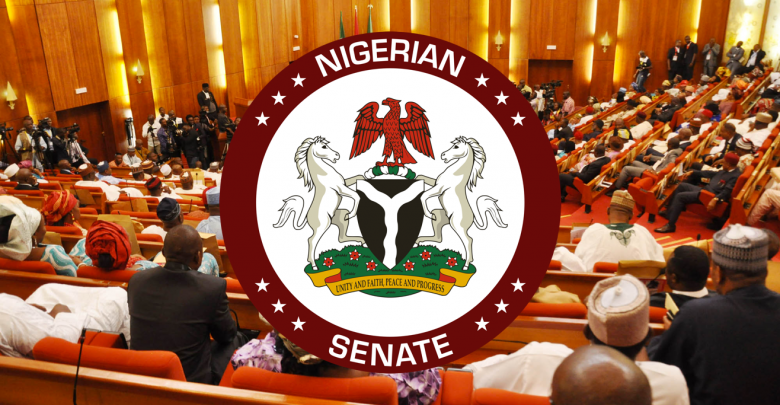As a way of improving efficiency aimed at addressing the problem of insecurity bedeviling the country, the Senate Ad-Hoc Committee on Security Challenges has called for a decentralisation of the Nigeria Police Force.
Consequently, the upper chamber recommended to the executive arm of government that the Police Command structure be decentralised with operational and budgetary powers vested in the zonal commands.
These were part of the recommendations contained in the report the Senate Ad-Hoc Committee on Security Challenges submitted at the Senate plenary on Wednesday.
The Senate also recommended that all joint operations should be carried out strictly in accordance with extant operational procedures provided in the Armed Forces Act.
Earlier, Chairman of the Ad-Hoc Committee, Yahaya Abdullahi (APC – Kebbi North), while reading from a 74 page report on the ‘Urgent need to restructure, review and reorganize the urgent security architecture in the country, disclosed that the panel during the course of engaging heads of security agencies and stakeholders, discovered that there are ill-defined operational boundaries and overlapping jurisdictions among security services.
According to him, “there is a lot of incoherence and inter-personnel conflict which have led to a lot of antagonism within the security organizations.”
The lawmaker blamed the high level of inefficiency among security agencies on lingering inter-personnel disputes.
Abdullahi observed further that the alleged non-funding of the Office of the National Security Adviser (ONSA) since 2015 has undermined the effective performance of its coordinating function in the security architecture, and has led many agencies to question its authority and relevance in various fora, thereby adversely affecting inter-service cooperation and intelligence sharing.
He blamed failure to define functions and boundaries between intelligence agencies on defective laws governing the operation of the Department of State Services (DSS), National Intelligence Agency (NIA) and Defence Intelligence Agency (DIA).
The lawmaker added that, “the general absence of a performance, monitoring and evaluation mechanism within the institutions and services have undermined discipline and due diligence in the conduct of security related operations.
“The security agencies tend to acquire modern technology and other force multipliers in isolation which resulted in the multiplication of incompatible platforms belonging to the different Arms of Services. This affected beneficial relationship and coherence of security operations,” he added.
Further blaming the failure to nip insecurity in the bud on the absence of an effective centralised criminal database for the country, the lawmaker bemoaned the lack of a comprehensive identity management data covering the country’s population with no interface of databases belonging to several institutions such as the Independent National Electoral Commission (INEC), Immigration, Customs, Nigerian Communications Commission (NCC), National Identity Management Commission (NIMC), among others.
However, Senator Rochas Okorocha (APC–Imo West) said, what was missing in this report was that the committee did not take out time to look at the relationship between the government and the governed.

 Health1 week ago
Health1 week ago
 Business1 week ago
Business1 week ago
 Health7 days ago
Health7 days ago
 Latest1 week ago
Latest1 week ago
 Latest1 week ago
Latest1 week ago
 Football7 days ago
Football7 days ago
 Education5 days ago
Education5 days ago
 Crime7 days ago
Crime7 days ago

